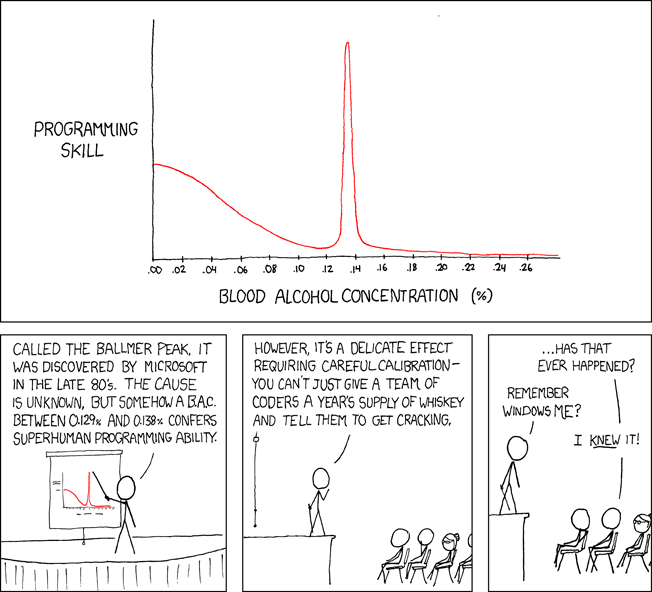I answered in the only way possible: "eeeeh..."
It turned out that my friend did not ask for help for himself, but for someone else, who had posted a programming class question on a non-programming bulletin board.
The poor fellow was struggling with a question of parsing a two-column input to generate a certain output format, essentially also two-column, except with a slightly different layout.
On Usenet, there was - and maybe still is - a long-standing tradition of not solving people's homework for them. The reasoning behind this is that we do not learn quite as well when people solve our problems for us, as when we struggle with them ourselves.
In some cases, school questions would be met with derision, in other cases with genuinely unhelpful and false answers, and sometimes with helpful clues about how to solve the problem; where to look, tips for using stepping debuggers, which book chapter or manual page would clarify the problem, etc.
Okay, that is fair enough.
The guy had gotten only one answer, from another guy who regretted that he had not touched Perl in ages, and therefore could not help. And I thought that Perl was like learning a particularly catchy, but annoying song: you might think that you have forgotten, but then someone hums or whistles the tune, and WHAM - there it is, stuck in your head again.
So I had a look. Maybe I could provide a hint or two, you never know. I know my way around some of the less scary parts of Perl 5 City, anyway.
This guy had essentially nailed the problem semantically, but he was evidently struggling with his code, it just did not work.
I immediately saw a few major concerns:
- Some parts were copy-pasted from bad textbook Perl.
- Some parts must have come from a poor programming education.
- The code was overly complex and verbose.
- There was no error checking or debug print-outs.
- And it would take me more time to helpfully point out these things than write something that might be a solution myself.
Should I help the guy out by tearing his code apart and pointing out all the flaws that made it thoroughly lousy code, thereby provoking a true emo-American melodrama?
Or should I just write an alternate solution, with sound error-checking, simplicity, and debug print-outs?
In this case, I thought the latter was the way to go. I put the code up anonymously somewhere, gave the link to my friend, and perhaps the fellow with the problem now has a better understanding of how simple and beautiful Perl can be.
Yeah, right. :D



